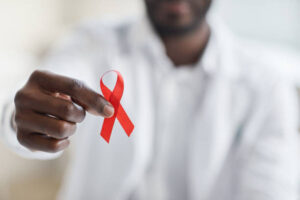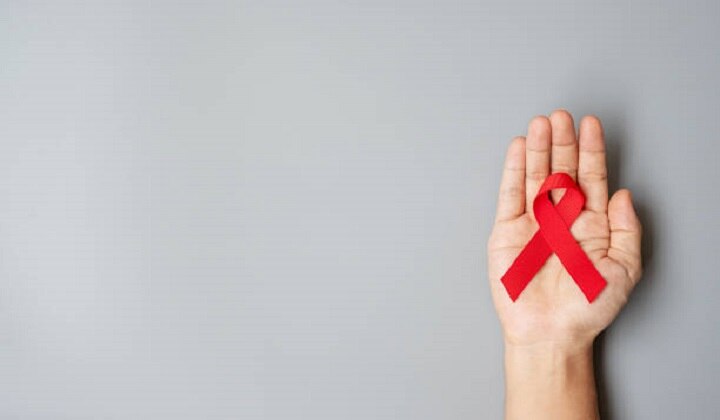HIV can only be transmitted through certain body fluids, such as blood, semen and vaginal fluids. Use condoms correctly, especially when having anal sex.
HIV infects and destroys white blood cells, leaving you vulnerable to illness that healthy people can fight off. You can prevent HIV by using condoms, getting tested, and taking medication like pre-exposure prophylaxis.
Know Your Status
HIV spreads through sexual activity, unprotected vaginal or anal sex, sharing injection drug needles and from mother to child during pregnancy, childbirth and breastfeeding. The virus damages your immune system by destroying CD4 T cells, which help fight infections. Over time, this can lead to AIDS, which causes severe disease and death.
Taking HIV medicine as prescribed can reduce the amount of virus in your body to levels that a test can’t detect (known as undetectable viral load). This is when you are at the lowest risk of transmitting HIV to others through sex.
Get Tested
Tests for HIV are quick, painless and confidential. They can detect both the virus itself and antibodies your body makes against it.
You can get a blood test or a rapid oral fluid test. The oral test requires rubbing the inside of your mouth with a swab. Blood tests are more accurate than the oral test.
A positive result means you have HIV infection. If it’s been less than a month since your possible exposure, you can take steps to prevent transmission by practicing safe sex and taking a daily pill called PrEP.
Get Treatment
People who get HIV and follow their treatment plan can make their virus undetectable, which means they can’t pass it on.
There are medications that reduce the risk of getting HIV through sex and from needlestick injuries, called pre-exposure prophylaxis (PrEP). This medication is available on the PBS for people who need it.
Talk to your health care provider about PrEP, a daily pill that prevents HIV infection. Always take your medication as directed. If you have trouble sticking to your HIV treatment plan, ask for help from a mental health provider or support group.
Don’t Share Needles or Syringes
HIV can only be transmitted through certain body fluids – blood, semen, vaginal fluids and rectal fluids. Condoms can prevent HIV infection, but only if they are used correctly. Latex condoms are the best protection, but polyurethane (plastic) and polyisoprene (synthetic rubber) condoms also work well. Avoid using oil-based lubricants, as they can weaken condoms and make them more likely to break during penetration.
If you inject drugs, use only new syringes and equipment for each injection. If you can’t afford to buy new syringes, use syringe exchange programs or pharmacies that sell sterile needles. Thoroughly clean all syringes and equipment after each use, especially after sharing.
Avoid Illicit Drug Use
HIV can spread through anal or vaginal sex, sharing contaminated injection drug paraphernalia (needles and syringes), contact with blood in high-income countries that don’t screen donated blood for the virus, and from mothers to their babies during pregnancy, childbirth and breastfeeding. The HIV virus destroys CD4 T cells, which are white blood cells that help fight infection and disease.
People who use illicit drugs are more likely to make risky decisions that increase their chances of getting and transmitting HIV. These include using multiple sex partners, exchanging sex for drugs or money and not using HIV prevention and treatment medications or condoms, look at more info.
Don’t Get Drunk or High

HIV can be spread through sex or by sharing contaminated needles or syringes. Some people may not know they have HIV because they don’t have any symptoms and feel fine.
HIV destroys the infection-fighting CD4 cells that help the immune system work. This is how HIV leads to acquired immunodeficiency syndrome (AIDS).
You can lower your risk of getting or spreading HIV by using condoms every time you have sex. There are also daily pills that you can take called PrEP (pre-exposure prophylaxis) that prevent HIV infection when taken regularly.
Use Condoms
Condoms are highly effective at preventing HIV and other sexually transmitted diseases (STDs) when used correctly. Use a new latex or polyurethane condom every time you have sex. Don’t use “natural skin” condoms, which have tiny holes that can allow HIV and other STDs to pass through.
Conclusion:
Avoid recreational drug use because it lowers inhibitions, increasing the risk of unprotected sex and other sexual behaviors that increase the risk of infection with HIV and other STDs. If you do use drugs, make sure to only use clean needles and never share them.
